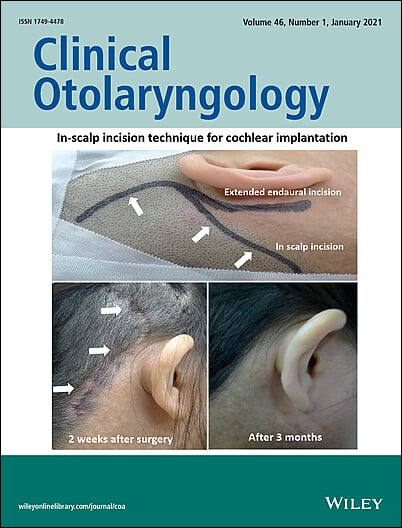Issues with Hearing? Here's When to Seek Help from a Hearing Clinic
Wiki Article
Exploring the Area of Otolaryngology: What to Anticipate When You Speak With an ENT
Otolaryngology, typically referred to as ENT, encompasses the medical diagnosis and therapy of ear, nose, and throat problems. Hearing. For those experiencing related issues, consulting an ENT expert can supply quality and alleviation. Comprehending what to expect during such consultations is vital for efficient communication and care. This overview will describe vital facets of the ENT experience, including usual factors for brows through and the processes included in medical diagnosis and therapyComprehending Otolaryngology: A Summary
Otolaryngology, frequently referred to as ENT (Nose, throat, and ear) medicine, is a specialized branch of medicine that concentrates on the medical diagnosis and therapy of problems affecting these critical locations of the human body. This field incorporates a vast range of disorders, including those related to hearing, balance, respiratory feature, and speech. Otolaryngologists are educated to manage both medical and medical therapies, making use of innovative strategies and modern technologies. Their knowledge prolongs past conventional conditions, addressing issues such as allergic reactions, sinus infections, and hearing loss. Additionally, they play a crucial role in the monitoring of head and neck cancers, providing extensive treatment customized to individual patient needs. Generally, otolaryngology remains necessary for preserving health and wellness and lifestyle in afflicted individuals.Usual Factors to See an ENT Professional
Lots of people seek the competence of an ENT specialist for a variety of reasons, reflecting the varied nature of problems that affect the throat, ear, and nose. Typical problems include persistent sinusitis, which typically causes consistent nasal blockage and facial discomfort. Allergic reactions and their connected signs, such as sneezing and itching, also trigger check outs to these experts. Hearing loss, whether sudden or gradual, is an additional substantial reason for appointment. On top of that, individuals might seek evaluation for throat disorders, consisting of relentless hoarseness or ingesting problems. Rest apnea, characterized by disrupted breathing throughout rest, is regularly dealt with by ENT experts too. Each of these problems highlights the value of specialized care in managing complicated ENT-related health and wellness issues.Getting ready for Your ENT Visit
When preparing for an ENT consultation, it is necessary to collect relevant information and take into consideration any type of particular problems. Clients must put together a thorough case history, including previous ear, nose, or throat concerns, surgical procedures, and existing medications. Documenting symptoms-- such as frequency, seriousness, and duration-- can provide useful understandings for the ENT specialist. Furthermore, people need to prepare a list of concerns they want to ask, ensuring that all worries are dealt with during the visit. Bringing along any type of pertinent medical documents or test outcomes can even more help the ENT in understanding the patient's problem. Individuals must validate their visit details, consisting of location, time, and day, to minimize any last-minute confusion. Proper preparation can boost the effectiveness of the appointment and result in far better outcomes.
What to Anticipate During the Consultation
As the consultation begins, the individual can expect to take part in an extensive discussion with the ENT specialist concerning their signs and medical background. The professional will ask about the period, regularity, and seriousness of symptoms such as hearing loss, nasal congestion, or aching throat. Furthermore, the client's previous medical conditions, medications, and any relevant household history will certainly ENT Clinic be evaluated, assisting the expert in forming a full understanding of the individual's health. The ENT might also ask concerning way of life factors, such as exposure to toxic irritants or allergens. This open discussion establishes a structure for the consultation, making certain that the individual's problems are attended to and establishing the stage for any necessary analyses or recommendations for therapy.Diagnostic Tests and Procedures in Otolaryngology
A variety of analysis examinations and treatments are essential in otolaryngology to properly evaluate and diagnose conditions impacting the ear, throat, and nose. Typical tests include audiometry, which determines hearing feature, and tympanometry, assessing center ear pressure. Nasal endoscopy allows visualization of the nasal passages and sinuses, while laryngoscopy analyzes the throat and vocal cords. Imaging strategies, such as CT scans and MRIs, offer in-depth sights of head and neck frameworks. Allergy screening may likewise be performed to identify triggers for sinus or respiratory system issues. These diagnostic tools enable ENT experts to develop a comprehensive understanding of patients' problems, ensuring tailored and efficient management plans. Correct diagnosis is vital for effective treatment end results in otolaryngology.Treatment Alternatives Provided by ENT Specialists
ENT experts supply a variety of therapy options customized to address certain conditions affecting the throat, ear, and nose. These treatments vary from conventional methods, such as medication and way of life modifications, to even more invasive procedures. For instance, allergies might be managed with antihistamines or immunotherapy, while persistent sinusitis might call for nasal corticosteroids or sinus surgery. For hearing loss, ENT professionals often recommend listening device or medical treatments like cochlear implants. In cases of throat disorders, choices can include speech therapy or medical procedures to remove blockages. In addition, they may supply advice for managing sleep apnea, consisting of using CPAP tools or surgical interventions. Overall, the goal is to enhance patients' lifestyle via customized care and reliable treatment techniques.When to Seek Follow-Up Treatment With an ENT
When to seek follow-up treatment with an ENT professional is crucial for handling continuous signs and symptoms or issues related to ear, throat, and nose problems, acknowledging. Clients should think about arranging a follow-up appointment if signs linger despite preliminary therapy, such as chronic ear pain, nasal blockage, or throat discomfort. Modifications in hearing, equilibrium problems, or uncommon nasal discharge might likewise require further assessment. Additionally, if a client experiences side effects from recommended medications or has undertaken a surgery, follow-up care is very important to check recovery and resolve any kind of worries. Prompt appointments can assure effective management of conditions, stop prospective difficulties, and provide satisfaction pertaining to one's wellness. Looking for follow-up treatment promotes proactive health and wellness monitoring in otolaryngologyFrequently Asked Inquiries
What Qualifications Should I Look for in an ENT Specialist?
When looking for an ENT expert, one need to seek board certification, pertinent experience, and solid client reviews. Additionally, reliable interaction skills and a compassionate approach can significantly enhance the total treatment experience.How Do I Pick the Right ENT for My Demands?
Picking the appropriate ENT expert involves evaluating their credentials, experience, and individual reviews. It is vital to contemplate their interaction style and approach to treatment, guaranteeing they line up with the individual's details wellness demands and choices.Exist Any Threats Connected With ENT Procedures?
The risks connected with ENT procedures may consist of infection, bleeding, anesthesia complications, and prospective damages to bordering frameworks. People should go over these risks with their doctor to understand private concerns and guarantee informed decisions.Exactly How Can I Take Care Of Stress And Anxiety Prior To My ENT Consultation?
To manage stress and anxiety before a visit, people can exercise deep breathing exercises, picture favorable outcomes, prepare inquiries ahead of time, and look for assistance from close friends or family, cultivating a sense of reassurance and peace.
What Should I Do if I Experience Adverse Effects From Therapy?
The person should quickly report them to their health care copyright if side effects from therapy take place. Modifications to therapy or extra interventions might be essential to ensure security and effectiveness in managing their condition. As the appointment starts, the client can expect to involve in a thorough conversation with the ENT professional about their signs and symptoms and medical background. These analysis tools allow ENT professionals to create a thorough understanding of individuals' problems, making certain tailored and efficient management strategies. ENT professionals supply a selection of therapy alternatives customized to attend to certain problems affecting the ear, throat, and nose. When seeking an ENT expert, one ought to look for board qualification, pertinent experience, and solid patient evaluations. Picking the ideal ENT expert involves evaluating their credentials, experience, and individual reviewsReport this wiki page